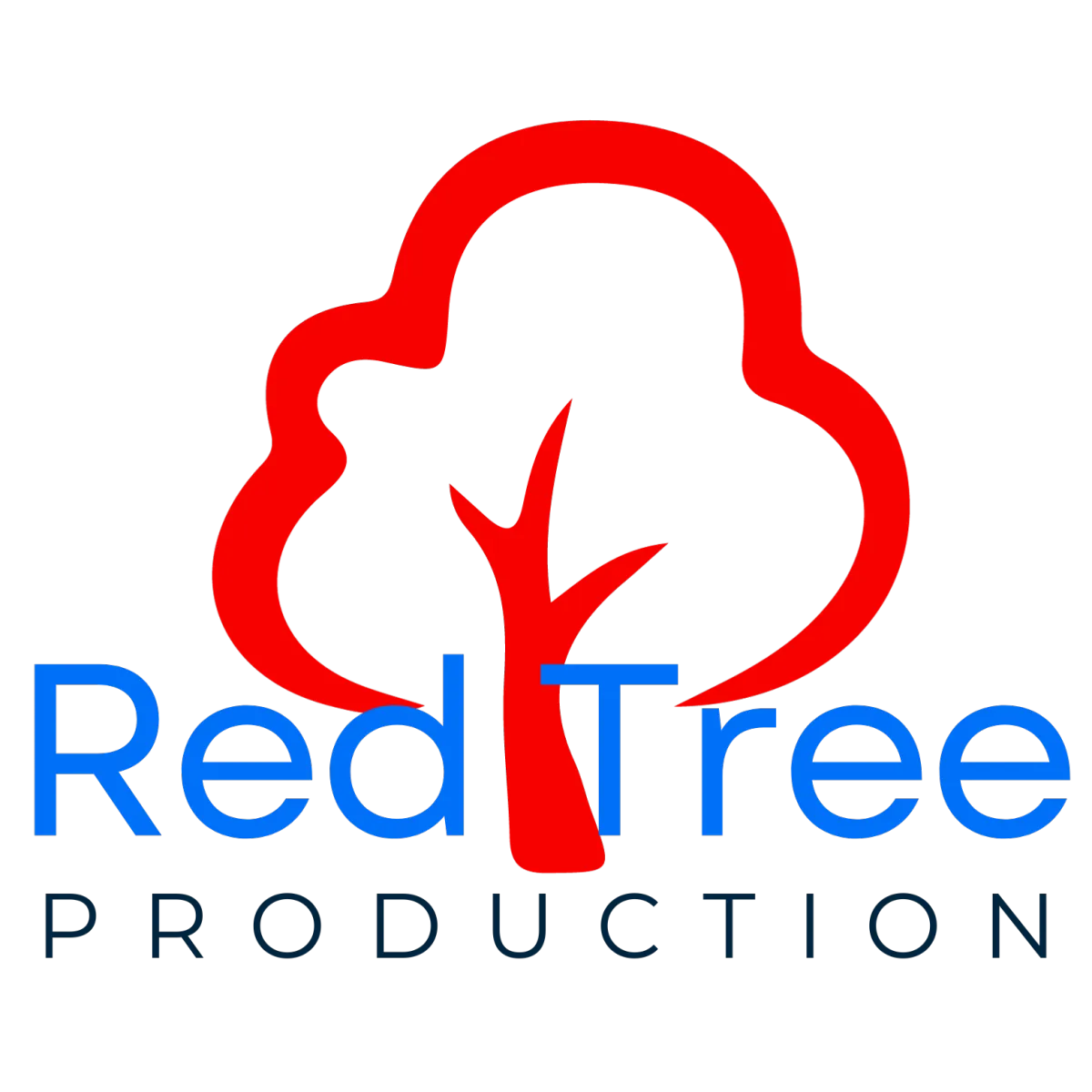Contact Us
Sales@RedTreeProduction.com
(307) 365-6220
Our Blogs
Welcome to our blog, where we dig deeper into the innovative world of our services. Here, you'll find invaluable insights, expert tips, and success stories that showcase how our cutting-edge solutions are transforming businesses. Explore our blog and unlock the potential to revolutionize your sales journey.

Simplify Your Real Estate Contracts with CRM Solutions
In the fast-paced world of real estate, efficient contract management is crucial for success. Real estate professionals often deal with numerous contracts, ranging from purchase agreements to lease agreements, all of which require meticulous attention to detail and seamless coordination. This is where Customer Relationship Management (CRM) solutions come into play, offering a robust framework to streamline contract management processes. By integrating CRM systems, real estate businesses can enhance their operational efficiency, reduce errors, and ensure compliance with regulatory standards. This article delves into the multifaceted benefits of CRM solutions in real estate contract management, providing a comprehensive guide to their implementation and utilization.
Understanding Real Estate Contracts
Real estate contracts are the backbone of property transactions. They include various types, such as purchase agreements, lease agreements, listing agreements, and more. Each contract type has its specific components, including terms and conditions, obligations of parties, timelines, and contingencies. Managing these contracts involves numerous challenges, such as ensuring accuracy, maintaining deadlines, and facilitating smooth communication between all involved parties. Without a streamlined system, the risk of errors, miscommunication, and compliance issues significantly increases.
Benefits of Using CRM for Contract Management
Implementing CRM solutions in real estate offers several advantages for contract management. Firstly, CRM systems streamline the creation and organization of contracts. These systems allow for the storage of templates and predefined clauses, making it easier to generate contracts quickly and accurately. Additionally, CRM platforms enhance communication and collaboration by providing a centralized repository where all parties can access and review contract documents. This transparency helps in reducing misunderstandings and ensures that everyone is on the same page.
Moreover, CRM solutions play a vital role in reducing errors and ensuring compliance. Automated checks and validations can be set up within the CRM to flag inconsistencies or missing information, thereby minimizing the risk of errors. Compliance with legal and regulatory requirements is also facilitated through CRM systems, which can be configured to adhere to industry standards and maintain audit trails for accountability.
CRM systems also facilitate the organization of essential documents and transaction details, such as escrow, mortgage, and title, ensuring that every crucial step is managed efficiently for a seamless deal.
Automating Contract Workflows with CRM
One of the most significant benefits of CRM solutions is the ability to automate contract workflows. Automation can drastically speed up the contract process by eliminating manual tasks and reducing administrative burdens. For instance, CRM systems can automate the generation of contracts based on predefined templates and data inputs. Reminders and notifications can be set up to alert parties about upcoming deadlines, ensuring timely actions.
Automated document generation is another critical feature. CRM platforms can pull data from various sources to populate contracts, reducing the time and effort required to create documents manually. This not only enhances efficiency but also ensures consistency and accuracy in contract creation.
Integrating CRM with E-Signature Solutions
In modern real estate transactions, e-signatures have become a standard practice, replacing traditional paper-based signatures. Integrating CRM systems with e-signature solutions further streamlines the contract management process. E-signatures facilitate faster execution of contracts, enabling parties to sign documents electronically from anywhere, at any time. This convenience accelerates the transaction process and reduces delays.
Seamless integration of CRM with e-signature tools ensures that signed documents are automatically stored and organized within the CRM system. This eliminates the need for manual uploads and ensures that all contract-related documents are easily accessible and securely stored.
Tracking Contract Status and Milestones
Effective contract management requires continuous monitoring of contract status and milestones. CRM systems provide real-time tracking capabilities, allowing real estate professionals to monitor the progress of contracts at every stage. Dashboards and reports can be customized to display critical information, such as contract initiation, negotiation, approval, and execution stages.
Setting up alerts and notifications for critical milestones ensures that important deadlines are not missed. For example, reminders can be configured for contract renewal dates, payment due dates, and other key events. This proactive approach helps in maintaining control over contract timelines and mitigating potential risks.
Enhancing Data Security and Compliance
Data security is paramount in real estate transactions, given the sensitive nature of the information involved. CRM solutions offer robust security features to protect contract data from unauthorized access and breaches. Role-based access control ensures that only authorized personnel can view or modify contract documents. Additionally, encryption and secure storage mechanisms safeguard data integrity and confidentiality.
Compliance with regulatory requirements is another critical aspect of contract management. CRM systems can be configured to adhere to industry regulations, such as data protection laws and record-keeping requirements. Automated compliance checks and audit trails facilitate adherence to legal standards and provide a transparent record of all contract-related activities.
Best Practices for Implementing CRM in Real Estate
Implementing a CRM system in real estate requires careful planning and execution. Here are some best practices to ensure successful implementation:
Define Clear Objectives: Identify the specific goals you aim to achieve with the CRM system, such as improving contract management efficiency, enhancing communication, or ensuring compliance.
Choose the Right CRM: Select a CRM solution that aligns with your business needs and integrates well with your existing systems. Consider factors such as ease of use, customization options, and scalability.
Train Your Team: Provide comprehensive training to your team to ensure they are proficient in using the CRM system. This includes understanding how to create and manage contracts, use automation features, and leverage reporting tools.
Customize Workflows: Tailor the CRM workflows to match your business processes. Customize templates, data fields, and automation rules to align with your contract management requirements.
Monitor and Optimize: Continuously monitor the performance of the CRM system and gather feedback from users. Use this feedback to make necessary adjustments and optimizations to enhance efficiency.
Ensure Data Migration: If transitioning from a legacy system, ensure that all existing contract data is accurately migrated to the new CRM system. This helps in maintaining continuity and avoiding data loss.
Choosing the Right CRM for Your Real Estate Business
Selecting the appropriate CRM solution is crucial for maximizing the benefits of contract management. Here are some factors to consider when choosing a CRM for your real estate business:
Functionality: Ensure that the CRM offers features tailored to real estate contract management, such as document storage, e-signature integration, and automated workflows.
Usability: The CRM should be user-friendly and intuitive, allowing your team to navigate and utilize its features without extensive training.
Integration: Check if the CRM can seamlessly integrate with your existing tools and systems, such as email, accounting software, and e-signature platforms.
Scalability: Choose a CRM that can grow with your business. It should be able to handle an increasing number of contracts and users as your business expands.
Support and Training: Opt for a CRM provider that offers robust customer support and training resources to assist with implementation and ongoing usage.
Popular CRM platforms for real estate include Salesforce, HubSpot, and Zoho CRM. These platforms offer a range of features and customization options to suit different business needs.
Conclusion: Embracing CRM for Future-Ready Contract Management
In conclusion, CRM solutions play a pivotal role in simplifying real estate contract management. By streamlining contract creation, enhancing communication, and automating workflows, CRM systems help real estate professionals manage contracts more efficiently and accurately. The integration of e-signature solutions further accelerates the transaction process, while robust security features ensure the protection of sensitive data.
Implementing a CRM system requires careful planning and execution, but the long-term benefits are well worth the effort. By choosing the right CRM, training your team, and continuously optimizing the system, you can achieve significant improvements in contract management efficiency and compliance. Embracing CRM solutions positions your real estate business for future-ready contract management, driving long-term success and growth in an increasingly competitive market.
See how Red Tree Production can make your real estate contract process easier. With our deep experience and broad network, we guarantee your clients get the best coverage, and we make sure the whole transaction runs smoothly.
Get in touch with us
We're excited to hear from you! Whether you're eager to learn more about our exciting, ever evolving CRM. If you have questions, or are ready to take your sales journey to the next level, our team is here to assist you.
Contact us today to start a conversation, and let's explore how we can tailor our solutions to meet your specific needs. Your success story begins with that first connection – reach out and discover the possibilities!
(307) 365-6220
Sales@RedTreeProduction.com
Monday - Friday, 8:00 am - 8:00 pm, PST
Start Your Success

Follow Us
Join us in redefining success. Together, we'll collaborate to craft a path that exceeds your sales goals, guiding you towards unparalleled achievement. Your journey to success begins here, with our unwavering support and expertise.
Services
More
Contact Us
Sales@RedTreeProduction.com
(307) 365-6220
© Copyright 2019. Red Tree Production. All rights reserved.
